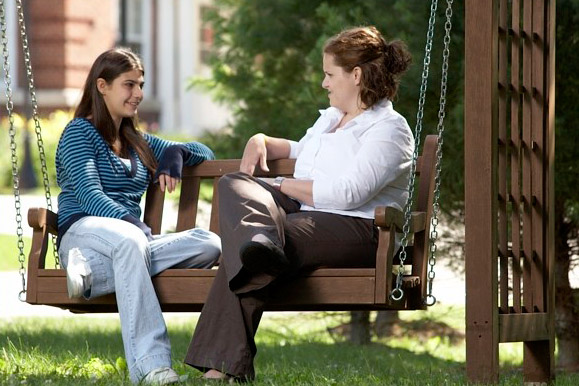Teenagers are inundated with expectations in their homes, schools and social lives leading to an estimated half a million attempting suicide each year. It is not uncommon for teens to experience varying degrees of stress, self-doubt, pressure to succeed and worry about their future. Unlike adults, teens struggle with the ability to look at life’s stressful events as temporary. For some, a series of stressful events may lead to a belief that the unhappiness is an overwhelming burden that will go on for the rest of their life. As time goes on they may begin to feel depressed and anxious. At moments, suicide may feel as if it is the only viable solution to their problems and stress.
Common stressors teens experience can include: increasing demands at school, bullying by peers, managing romantic relationships, facing peer pressure to use drugs or alcohol, becoming increasingly independent from their parents and the pressures of finding a job or preparing for college.
Parents should be aware of some of the following signs of teen depression:
- Significant changes in eating and/or sleeping habits
- Withdrawal from friends, family and regular activities
- Feelings of worthlessness, sadness or low self-esteem
- Neglect of personal appearance or complaints about physical illness (headache, stomachache, etc.)
- Persistent boredom, significant difficulty concentrating or a decline in the quality of school work
- Loss of interest in pleasurable activities
- Thoughts of death
- Intentional self-harm
Signs you may see from a teenager who is planning to commit suicide (may include, though not limited to):
- Talking about being a bad person or feeling empty inside
- Giving verbal hints with statements such as: “Nothing ever works out for me. Everyone would be better off without me. I can’t take it anymore.”
- Giving away possessions, cleaning his or her room, writing goodbye letters or posting farewells on social media
- Becoming suddenly cheerful after a period of depression
In general, what should you do if you think that a teen close to you feels suicidal?
Ask them directly whether or not they have been thinking of killing themselves. People often feel uncomfortable talking about suicide, but doing so may save your loved one’s life. It is a myth that talking about suicide “puts the idea” into someone’s head. People who feel suicidal want to know that someone cares and will listen to their pain. Always take statements of wanting to die seriously. Do not leave your child alone.
Seek help immediately. If your teen states that they want to die or if they have thoughts about suicide, seek help from a qualified mental health therapist who can help identify and problem-solve your child’s needs.
With support from family and appropriate treatment, children and teenagers who are suicidal can go forward to feel hopeful and live productive and happy lives. If you feel a teenager you know is exhibiting some of these signs, Rogers Memorial Hospital can help. Our inpatient and day treatment programs provide a safe environment where teens can work on stabilizing their symptoms and identifying ways to manage their emotions when feelings of hopelessness arise.
To schedule a free screening call 800-767-4411 or request one online.
The following resources also provide information on teen depression and suicide:


